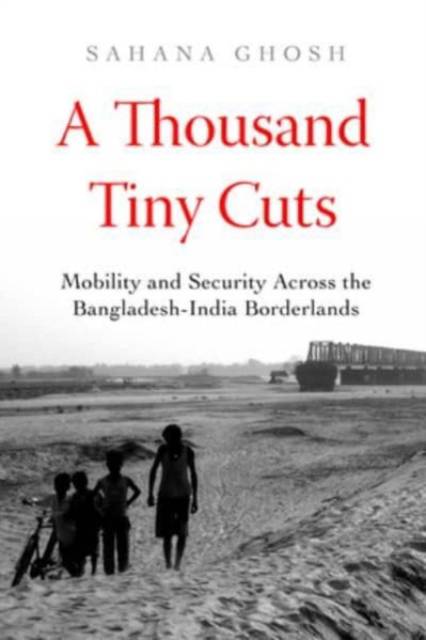
Door een staking bij bpost kan je online bestelling op dit moment iets langer onderweg zijn dan voorzien. Dringend iets nodig? Onze winkels ontvangen jou met open armen!
- Afhalen na 1 uur in een winkel met voorraad
- Gratis thuislevering in België vanaf € 30
- Ruim aanbod met 7 miljoen producten
Door een staking bij bpost kan je online bestelling op dit moment iets langer onderweg zijn dan voorzien. Dringend iets nodig? Onze winkels ontvangen jou met open armen!
- Afhalen na 1 uur in een winkel met voorraad
- Gratis thuislevering in België vanaf € 30
- Ruim aanbod met 7 miljoen producten
Zoeken
A Thousand Tiny Cuts
Mobility and Security Across the Bangladesh-India Borderlands Volume 10
Sahana Ghosh
€ 50,95
+ 101 punten
Uitvoering
Omschrijving
A Thousand Tiny Cuts chronicles the slow transformation of a connected region into national borderlands. Drawing on a decade of fieldwork in northern Bangladesh and eastern India, Sahana Ghosh shows the foundational place of gender and sexuality in the making and management of threat in relation to mobility. Rather than focusing solely on border fences and border crossings, she demonstrates that bordering reorders relations of value. The cost of militarization across this ostensibly "friendly" border is devaluation--of agrarian land and crops, of borderland youth undesirable as brides and grooms in their respective national hinterlands, of regional infrastructures now disconnected, and of social and physical geographies disordered by surveillance. Through a textured ethnography of the gendered political economy of mobility across postcolonial borderlands in South Asia, this ambitious book challenges anthropological understandings of the violence of bordering, migration and citizenship, and transnational inequalities that are based on Euro-American borders and security regimes.
Specificaties
Betrokkenen
- Auteur(s):
- Uitgeverij:
Inhoud
- Aantal bladzijden:
- 296
- Taal:
- Engels
- Reeks:
Eigenschappen
- Productcode (EAN):
- 9780520395732
- Verschijningsdatum:
- 26/09/2023
- Uitvoering:
- Paperback
- Formaat:
- Trade paperback (VS)
- Afmetingen:
- 152 mm x 226 mm
- Gewicht:
- 399 g

Alleen bij Standaard Boekhandel
+ 101 punten op je klantenkaart van Standaard Boekhandel
Beoordelingen
We publiceren alleen reviews die voldoen aan de voorwaarden voor reviews. Bekijk onze voorwaarden voor reviews.











